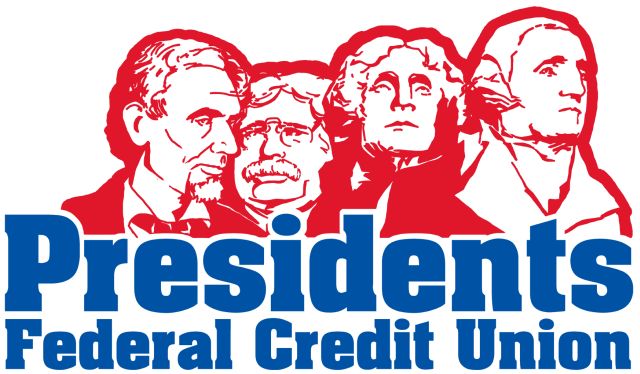5 Tips for Budgeting in the New Economy
In today’s rapidly changing economic landscape, effective budgeting has never been more crucial. With fluctuations in job markets, rising prices, and unexpected expenses, managing your finances requires a proactive approach. At President FCU, we understand the importance of financial literacy and want to help you navigate these challenges. Here are five essential tips for budgeting in the new economy.
1. Assess Your Current Financial Situation
5 Tips for Budgeting in the New Economy
Before you can create an effective budget, it’s critical to have a clear understanding of your current financial situation. Start by listing all your sources of income, including your salary, side jobs, and any passive income. Next, document all your expenses, separating them into fixed (rent, utilities, loans) and variable (groceries, entertainment, dining out).
Internal Link: For more on tracking expenses, check out our Loan Calculator.
Resources for Financial Assessment
- Mint: A budgeting tool that helps you track your expenses and income in one place.
- Personal Capital: An investment and budgeting tool that gives you a snapshot of your finances.
2. Set Clear Financial Goals
5 Tips for Budgeting in the New Economy
Setting financial goals is a cornerstone of effective budgeting. Determine what you want to achieve in the short term (saving for a vacation) and long term (buying a house). Make your goals SMART: Specific, Measurable, Achievable, Relevant, and Time-bound.
For example, instead of saying, “I want to save money,” say, “I want to save $5,000 for a down payment on a car in the next 12 months.”
Internal Link: Explore our Savings Accounts to find the best option for your goals.
Tools for Goal Setting
- You Need a Budget (YNAB): A budgeting software that emphasizes goal setting.
- Goalsetter: A platform specially designed for setting and achieving financial goals.
3. Create a Flexible Budget
5 Tips for Budgeting in the New Economy
In the new economy, flexibility is key. Your budget should be able to adapt to changes in income or unexpected expenses. Consider using the 50/30/20 rule as a guideline: allocate 50% of your income to needs, 30% to wants, and 20% to savings or debt repayment.
To maintain flexibility:
- Review your budget monthly.
- Adjust your spending categories as needed.
- Use budgeting apps that allow real-time updates.
Internal Link: For tips on adjusting your budget, visit our Blog.
Recommended Budgeting Apps
- EveryDollar: A user-friendly app that allows for easy budget adjustments.
- GoodBudget: A digital envelope budgeting tool that helps you manage your spending.
4. Prioritize Emergency Savings
5 Tips for Budgeting in the New Economy
An emergency fund is essential for financial stability, especially in uncertain times. Aim to save at least three to six months’ worth of living expenses. This fund can help you manage unexpected costs without derailing your budget.
To build your emergency fund:
- Automate your savings by setting up a direct deposit from your paycheck.
- Start small if necessary; even $25 a week can add up over time.
Internal Link: Learn more about our Membership Benefits that can assist you in building your savings.
External Resources for Emergency Savings
- NerdWallet: Offers advice on how to build an emergency fund.
- Bankrate: Provides calculators and tips for savings goals.
5. Educate Yourself on Financial Literacy
5 Tips for Budgeting in the New Economy
Understanding financial concepts is crucial for budgeting effectively. Take advantage of the resources available through President FCU and other reputable sources. Attend workshops, read articles, and engage with financial advisors to improve your financial literacy.
Internal Link: Check out our FAQ for common financial questions and answers.
Recommended Financial Literacy Resources
- Khan Academy: Offers free courses on personal finance and budgeting.
- Smart About Money: Provides resources for financial education.
Conclusion
5 Tips for Budgeting in the New Economy
Budgeting in the new economy may seem daunting, but with these tips, you can take control of your finances and set yourself up for success. At President FCU, we’re here to support you with a variety of financial products and services designed to meet your needs.
FAQ
5 Tips for Budgeting in the New Economy
- What should I do if I overspend my budget?
- Analyze where you overspent, adjust your budget accordingly, and consider cutting back in other areas.
- How often should I review my budget?
- At least once a month, or more frequently if your financial situation changes.
- What’s the best way to start an emergency fund?
- Begin by saving a small, fixed amount regularly, and gradually increase it as you become more comfortable.
- Can I still save while paying off debt?
- Yes, prioritize your debt payments while also setting aside a small amount for savings.
- What tools can help me budget effectively?
- Consider using budgeting apps like Mint or YNAB, as well as traditional spreadsheet methods.
For more information on how President FCU can assist you in your financial journey, visit our Contact Us page or give us a call at 1 (800) 416-8703.
- Consumer Financial Protection Bureau
- Investopedia
- MyMoney.gov
- Credit Karma
- The Balance
- Financial Literacy and Education Commission
- FICO
- National Endowment for Financial Education
- SmartAsset
- Credit Sesame
By implementing these strategies and utilizing available resources, you can successfully manage your finances and thrive in the new economy.
5 Tips for Budgeting in the New Economy



Recent Comments